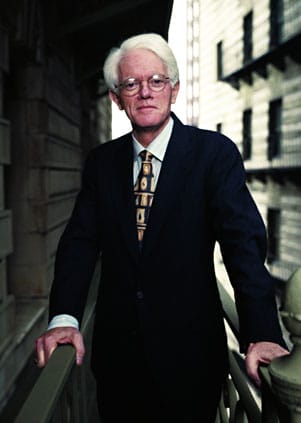 Stock picker extraordinaire Peter Lynch’s “invest in what you know” strategy has made him a household name with investors both big and small.
Stock picker extraordinaire Peter Lynch’s “invest in what you know” strategy has made him a household name with investors both big and small.
A Boston resident for all but his Wharton years, Lynch ran Fidelity Investments’ Magellan Fund from 1977 to 1990, uncovering investment gems like Taco Bell, Pier One Imports, and Dunkin’ Donuts. During the Lynch years, Magellan was the topranked general equity mutual fund in America, averaging an amazing 29.2 percent return a year, and only underperforming the S&P 500 index twice. He retired in 1990 at the age of 46, a move that brought mailbags of letters from distraught investors.
While running Magellan, Lynch avoided hot, fast-growth industries, preferring instead to find an overlooked stock in a sleeper sector. Then, he learned as much as he could about it. “The person that turns over the most rocks wins the game. And that’s always been my philosophy,” Lynch has said over the years.
Now vice-chairman of Fidelity Investments, Lynch has lived and breathed his strategy, even choosing one company, Hanes, in the 1970s because his wife bought and loved its new L’Eggs pantyhose line—the first department-store-quality pantyhose sold to American women via supermarkets. “I did a little bit of research,” Lynch told PBS’s Frontline. “I found out the average woman goes to the supermarket or a drugstore once a week. And they go to a woman’s specialty store or department store once every six weeks. And all the good hosiery, all the good pantyhose is being sold in department stores. They were selling junk in the supermarkets. They were selling junk in the drugstores.”
Lynch knew Hanes had a winner. L’Eggs became a huge success, and Hanes became Magellan’s biggest position. Lynch’s widespread influence was broadened further by his three bestselling texts on investing (written with co-author John Rothchild), including One Up on Wall Street, Beating the Street, and Learn to Earn, which was written for teenagers.
He has long insisted that individual investors who don’t have time to learn complicated quantitative stock measures or read lengthy financial reports can research stocks as well or better than most investment professionals by using the “invest in what you know” principle to find undervalued stocks. “Go for a business that any idiot can run,” he has said, “because sooner or later, any idiot probably is going to run it.”

























